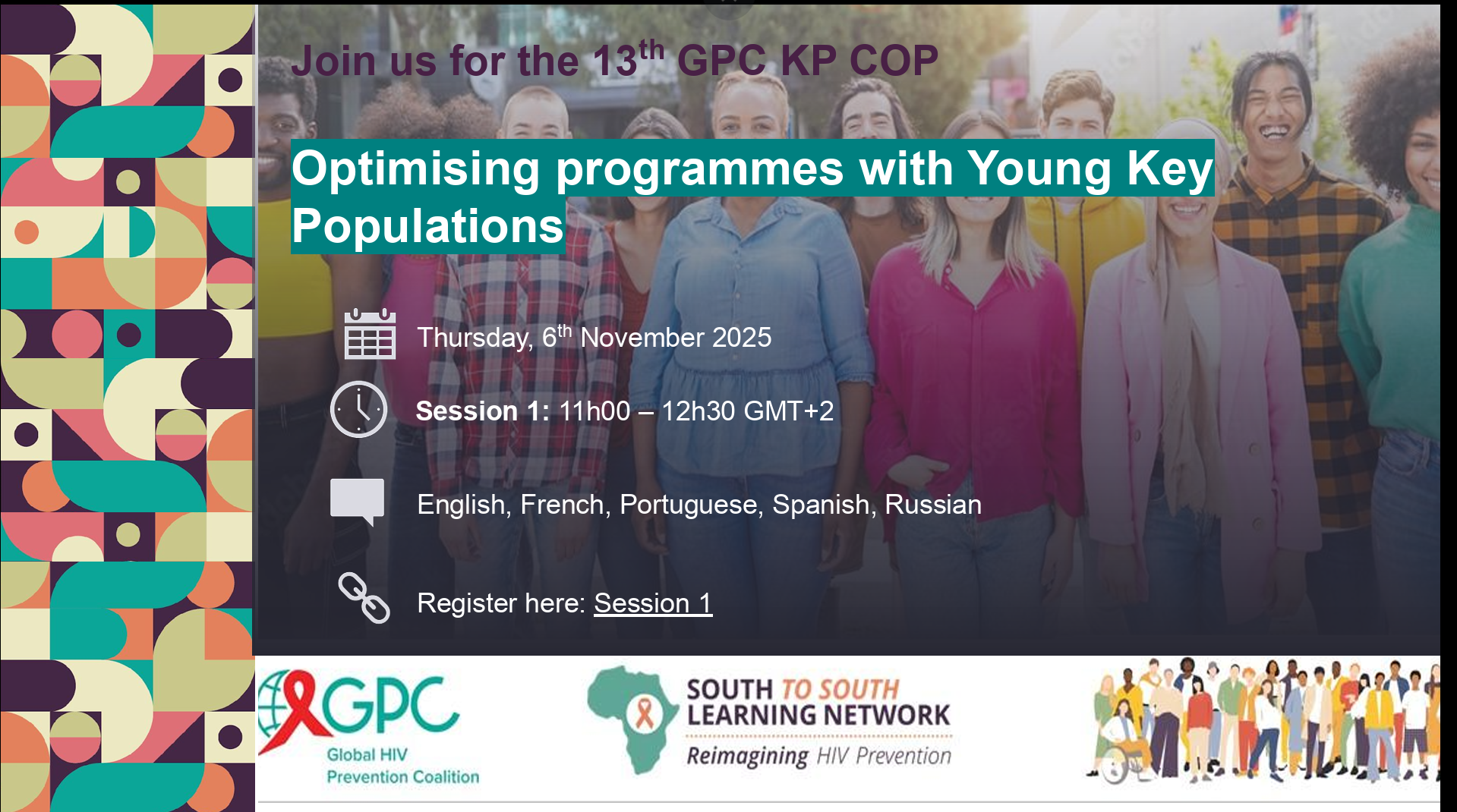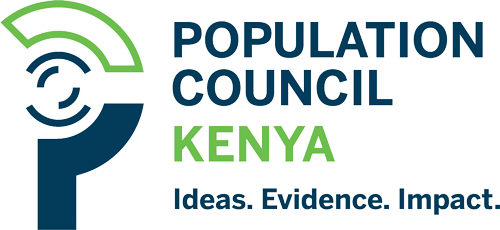Background
Despite global efforts, HIV incidence among young key populations (KPs) in Africa remains disproportionately high. Groups such as young women who sell sex, men who have sex with men (MSM), transgender youth, and people who inject drugs face elevated HIV risks due to stigma, criminalisation, and social exclusion. Achieving the 2025 global HIV prevention targets requires evidence-based, scalable, and sustainable interventions that are tailored to the unique needs of these populations.
The Community of Practice (CoP) convened by the Global HIV Prevention Coalition (GPC) and South-to-South Learning Network (SSLN) provided a platform for peer learning, knowledge exchange, and multi-stakeholder collaboration, focusing on practical, data-driven strategies that can be applied across resource-limited African contexts.
Objectives
- Create a safe space for frank discussion on how to accelerate programme
- Facilitate peer-to-peer/country-to-country exchange of experiences in programme development, implementation, monitoring, evaluation and community engagement
- Receive updates on global policy, latest guidance, implementation tools and financing opportunities
Proceedings
Session 1
The first session was chaired by Andrey Poshtaruk (UNFPA), who welcomed participants and set the stage for a collaborative discussion. Clemens Benedikt (GPC) presented updated guidance on Planning and Managing HIV Programmes with Key Populations, highlighting practical tools for programme design, implementation, and monitoring. Maria Stacey (SSLN) complemented this with her presentation on How to Implement Programmes for Young Women who Sell Sex, providing hands-on recommendations for interventions targeting one of the most vulnerable sub-groups of young KPs. Matteo Cassolato (Global Fund) emphasized the importance of aligning national strategies with evidence-based frameworks to optimize programme impact.
The panel discussion featured John Mbau (NASCOP Kenya), Ikka Noviyanti (YouthLead), Henry Okiwu (Youth Rise), and Matteo Cassolato (Global Fund). Panelists shared country-specific experiences and highlighted scalable service delivery models, innovative approaches to reducing stigma and social exclusion, and strategies to strengthen programme sustainability. Participants engaged through Mentimeter polls, contributing insights and questions that facilitated rich, real-time peer learning and cross-country knowledge exchange. The session concluded with a strong emphasis on community-centered, data-driven approaches to ensure long-term impact and equitable access for young key populations in Africa.
Session 2
Chaired by Souad Orhan (UNAIDS), the second session built on the foundations of the first, providing further insights and examples from diverse African contexts. Presenters Clemens Benedikt (GPC), Maria Stacey (SSLN), and Matteo Cassolato (Global Fund) reiterated evidence-based guidance for programme planning and highlighted tools for monitoring and evaluation that could be applied in resource-limited settings across the continent.
The panel included Nana Poku (Ghana NAC), Roger Anthony Granizo Abril (Red Juvenil de Latinoamérica y el Caribe), Ssali Henry Bengo (ASWA), and Matteo Cassolato (Global Fund). Panelists discussed innovative interventions and country-specific lessons, sharing strategies for reaching young key populations while tackling barriers such as stigma, discrimination, and social exclusion. The session again incorporated interactive Mentimeter engagement, allowing participants to provide feedback and exchange practical solutions across countries. The discussion emphasized the importance of sustainability, community involvement, and evidence-based planning in ensuring that interventions remain effective and accessible over time.
Key takeaways
Across both sessions, the CoP highlighted the critical role of evidence-based, community-centered interventions in reaching young key populations in Africa. Participants recognised that peer learning and cross-country collaboration enhance programme innovation and adaptability. The updated guidance from GPC and SSLN was widely acknowledged as a practical tool for programme planning, implementation, and monitoring, while panel discussions reinforced the need for strong partnerships between governments, donors, and communities.

















